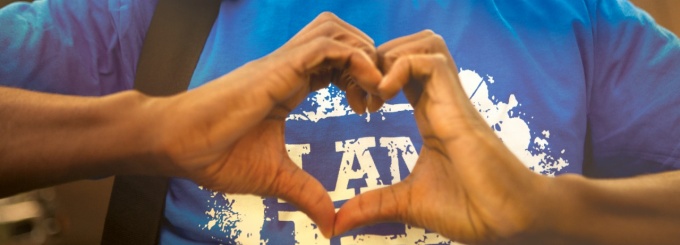Black Lives Matter

Social Justice Statement of Solidarity with the Black Lives Matter Movement from University at Buffalo School of Social Work
Members of the faculty of the UB School of Social Work raise our voices in solidarity with the Black Lives Matter movement and other struggles to end the dehumanization of people of color and to promote equitable and humane treatment for all people.
This dehumanization, which is pervasive in our culture and societal institutions, leads to the perpetration of systemic violence and human rights violations upon communities of color. Although dehumanization is a global phenomenon, we focus our current attention on the United States. Among the many examples of this dehumanization we note:
- The murders of Michael Brown, Eric Garner, Tamir Rice, Oscar Grant, Akai Gurley, Charly "Africa" Leundeu Keunang, Tony Robinson, Jr., and scores of other unarmed Black men and women, youth, and children by police officers in communities throughout this country;
- The institutional racism within the criminal justice system reflected in the mass incarceration of black and brown people within America’s prisons; daily occurrences of police harassment, intimidation, and brutality; and stop-and-frisk polices, stand-your-ground laws, and the militarization of police forces that disproportionately target communities of color;
- The persistent disparities in housing, education, income, wealth, health, and employment that are caused by public policies and private practices that actively privilege white people and disadvantage people of color;
- Language that demonizes people of color, disregards basic civil rights for homeless individuals and people in poverty, denigrates immigrants and migrant workers as “illegals,” and racial slurs and racist caricatures of American Indian people as mascots for athletic teams;
- The gutting of the Voting Rights Act by the U.S. Supreme Court and efforts by states to pass voter suppression legislation that will disproportionately impact African American voters.
As a School of Social Work dedicated to promoting social and economic justice, human rights, and a trauma-informed perspective, we will continue to:
- Be agents of change for racial justice, from local to global communities, through our research, teaching, and community service;
- Promote critical dialogues within and beyond our school about how racism and other forms of structural oppression and structural inequalities affect us, our relationships, our organizations, and our communities;
- Acknowledge that silence and inaction contribute to the maintenance of ongoing institutional racism and other structural inequalities;
- Support UBSSW community members’ participation in direct social and political actions that promote human rights and racial and economic justice;
- Strengthen the curriculum by deepening content and expanding curricular offerings focused on advocacy, community organizing, restorative justice practices, and intergroup dialogues.
Signed by
Louanne Bakk
Anna Ball
Laina Y. Bay-Cheng
Lisa Butler
Betsy Bowen
Filomena Critelli
Catherine Dulmus
Diane Elze
Gretchen Ely
Rob Keefe
Kathy Kendall
Isok Kim
Wooksoo Kim
Denise Krause
Laura Lewis
Patricia Logan-Greene
Shaanta Murshid
Yunju Nam
Kelly Patterson
Thomas Nochajski
Barbara Rittner
Patricia Shelly
Annette Semanchin-Jones
Nancy J. Smyth
Charles Syms
Deborah Waldrop
Hilary Weaver